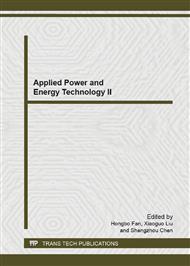p.381
p.387
p.391
p.399
p.404
p.409
p.417
p.421
p.426
Comparison of the Two Decomposition and Coordination Algorithms for Reactive Power Optimization Based on Proximal Center Algorithm
Abstract:
Aiming at the two decomposition and coordination reactive power optimization algorithms both of which are based on proximal center algorithm, they are compared in detail in the calculation process, communication and coordination mode and the amount of required communication data in each iteration. Taking the IEEE 118-node system and the IEEE 300-node system as an example, the coefficient matrix, communication and coordination mode and the amount of required communication data in each iteration of the two algorithms are compared and analyzed. The convergence characteristics of the two algorithms are the same, and which algorithm is better depends on the communication and coordination mode is more convenient to apply and you want to select.
Info:
Periodical:
Pages:
404-408
Citation:
Online since:
August 2014
Authors:
Price:
Сopyright:
© 2014 Trans Tech Publications Ltd. All Rights Reserved
Share:
Citation:


